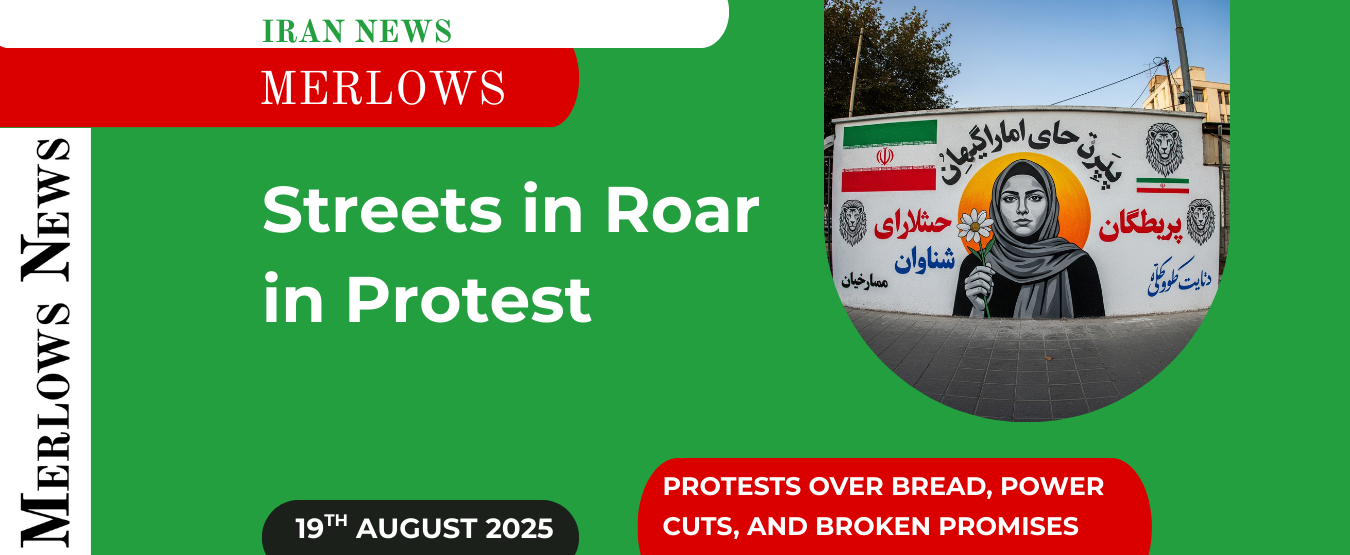When bread vanishes and the lights go out, even fear begins to crack.
In a Nutshell
Between 17 and 19 August 2025, protests erupted across Iran. Bakers shut their shops, truckers blocked roads, retirees marched for pensions, and city dwellers demanded water and electricity. Reports from the NCRI described a nation boiling over, with chants not just for bread but for freedom.
The regime responded as it always does: with arrests, intimidation, and denials. Yet the roar on the streets was undeniable.
The Main Course
Bread is never just bread. In 1789, Paris starved and the monarchy fell. In 1977, bread shortages helped ignite Iran’s own revolution. Today, the ayatollahs face the same combustible mix of hunger and anger.
The protests were not coordinated by politicians or exiles. They were spontaneous, sparked by shortages and rolling blackouts. In Tehran, families cursed the regime as they sat in the dark. In Shiraz and Isfahan, queues for bread turned into marches. In Mashhad, retirees carried placards demanding pensions they had been denied for months.
These were not the slogans of ideology. They were the cries of survival. And therein lies their danger. Regimes can control ideology. They cannot control hunger.
The Media Recommends
Reuters framed them as “sporadic economic protests.” The BBC said they were “small-scale.” CNN buried them beneath coverage of Gaza.
But those who remember 1979 know better. Small sparks can ignite revolutions when the ground is dry enough.
The Merlow View
The fantasy is that the regime can endure indefinitely, suppressing each uprising as it has before. The reality is that hunger breaks fear. Every arrest, every baton strike, cannot conjure bread. And every parent forced to choose between food and silence leans closer to defiance.
History teaches that authoritarian regimes collapse not when their armies are defeated, but when their people no longer believe they can eat tomorrow. Iran’s rulers may yet suppress these protests. But they cannot reverse the fact that every loaf missing from the table is another crack in their wall of power.
The invitation is to see the protests not as “sporadic” but as prophetic. Bread is more dangerous to tyrants than bullets. To recognise this is to understand that Iran’s revolution, when it comes, may be baked in an oven before it is forged in a street battle.







Share this: